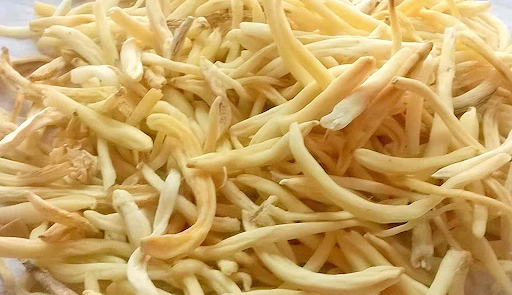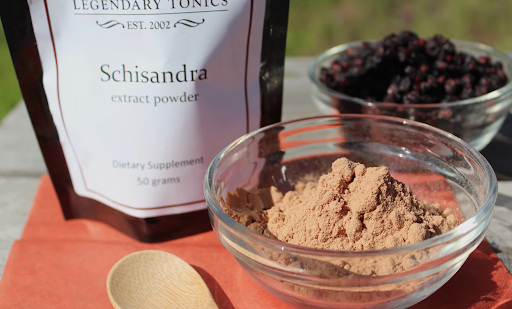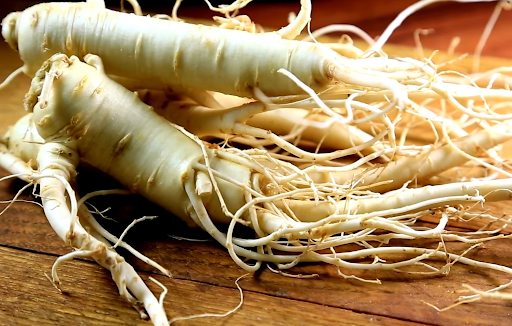Indian ginseng aka the Ashwagandha. It is very little known today’s date. It held huge importance in the history of Indian traditional medicine.
Ashwagandha, the hero of Ayurveda has the capability to cure more than a number of health problems. It has the ability to rejuvenate the self as it is also a ‘Rasayana’ which means rejuvenator. So, its very important to know about Ashwagandha Benefits for Women.
A woman’s body goes through a lot of changes and imbalances throughout their life, ashwagandha can benefit in a lot of ways. Some we will be seeing here:
11 Reasons Why You Should Add Ashwagandha to Your Diet If You Are Female:-
- Reduces stress and anxiety: With the responsibility of work and family, women find it stressful to manage everything all together. Adrian L. Lopresti and his peers have proved in their experiment that ashwagandha has anxiolytic and antidepressant effects on the brain. It regulates the level of cortisol in the body. It helps to overcome irritability, hypervigilance, restlessness, fatigue, overthinking, and so on.
- Improves fertility: An article from The Indian Express claims that it has the ability to balance out the hormones which are the reason for infertility in most cases. Another reason for infertility could be iron accumulation. According to the experiment ‘Iron Chelation and Antioxidant Properties of Withania somnifera (Ashwagandha) Restore Fertility in Men and Women’ by Bentham Science Publishers, Ruchira Joshi, and her colleagues have proved that it can be cured through the intake of ashwagandha.
- Improves Sexual Function: The same study has also proved that Ashwagandha restores and in fact increases libido in the hypothalamic-pituitary-gonadal axis and consequently flusters the secretion of sex hormones.
- Regulated Prolactin level: In a study, it is seen that Ashwagandha lowers the level of prolactin and helps in fertility, which is released by The pituitary gland. This stimulates the production of breast milk during the delivery of a child. This hormone blocks ovulation and prevents the woman to conceive a child.
- Boosts energy level: According to a survey by the National Center for Biotechnology Information (NCBI), almost 13% of people in the U.S. take at least one herbal supplement every day and among those supplements, ashwagandha is preferred as the source of energy. Dr. Amrita Sharma writes in her article, how it boosts energy in humans.
- Helps in weight loss: An article published by the Times of India suggests that ashwagandha can be a key ingredient in losing weight as it increases the metabolism and helps in the easy digestion of food. Another study under NCBI has proved the benefits of ashwagandha in lowering the body weight gained through the disbalance of estrogen hormone.
- Improves sleep: Sleep is not only important for women but also for any living organism. In a study, Przemyslaw Jedruszczak and her colleagues have published in their article, published in January 2023, claims that Ashwagandha helps in restoring a sound and lengthy sleeping pattern. It helps in overcoming problems like sleep depreciation, insomnia, and any sleep-related disorders.
- Balances Hormones: Ashwagandha acts as a hero in balancing out the rollercoaster of hormones in women’s bodies as it contains adaptogens. It has an ameliorative effect on regulating thyroid hormones – T3 & T4, serotonin, and cortisol hormones too. These help in regulating metabolism, proper neural control, and stress regulation respectively. This has been proved in the article which was published on March 19, 2022. Nowadays, some of the issues like PCOS, and menstrual cramps are found in every one or another woman. A study shows that it can be treated with ashwagandha.
- Improves cardiovascular health: The recent study on ashwagandha in May 2023 has shown a profound effect of adding it to the diet by lowering cortisol levels and cholesterol which has an adverse impact on the human body.
- Improves Bone Health: Osteoporosis is a common medical condition in most females at a certain age due to loss of bone density. Ashwagandha prevents osteoporosis by regulating the level of estrogen but one unique thing about ashwagandha that isn’t known is that, at times it also acts similarly to estrogen and thus it prevents bone loss in females. Therefore it should be taken as a supplement after parturition and lactation for the recovery of bone strength.
- Ashwagandha as a facial lotion: Which woman doesn’t want flawless, ageless, and glowing skin? ‘A study on efficacy and safety of Ashwagandha’ by Keerthi Narra and her fellow peers, has shown that lotion of ashwagandha standardized root extracts improves the skin condition with different skin types and standard comparators.
Side Effects of Ashwagandha in Females:-
Since ashwagandha is purely herbal, it does not possess any toxicological effect on the body. But anything taken in excessive amounts harms the body in one or another way.
There are the categories with medical conditions that should avoid ashwagandha supplements:-
- Drowsiness – Since we have read many articles about how ashwagandha releases stress and improves sleeping habits, it may affect them adversely; it can make the female feel lethargic and drowsy which can affect their daily chores.
- Pregnant women- ashwagandha can help to cure stress, insomnia, and depression during pregnancy but it should be directed from personal gynecologists.
- Lactating or breastfeeding women- Ashwagandha lowers the level of prolactin which in turn reduces milk production.
- Allergies- on consuming ashwagandha, it could react in several ways such as nausea, diarrhea, or digestive issues because of irritation of intestinal mucosa.
- Rheumatoid arthritis- the supplements should be avoided in case of autoimmune chronic diseases such as rheumatoid arthritis or lupus because it makes the immune system more active. Although, it is preferred to consult a medical professional before adding it to the diet.
How is Ashwagandha Consumed?
An article in the Times of India suggests several ways to consume ashwagandha.
- Root extracts – The Times of India has claimed the main source of the supplement of ashwagandha is extracted from the dried roots of the plant Withania somnifera. The powder can be mixed with Ghee(clarified butter), Honey, tea, or water.
- Adding to the recipes- It can be relished with daily intakes like sweet beverages, smoothies, and yogurts; a tincture of ashwagandha will be enough to provide you with the benefits.
- Tablets- Nowadays, it is also available as a supplement in the form of tablets.
- Oils- The external application of ashwagandha oils on the skin and the scalp can induce antioxidant, anti-inflammatory, and therapeutic effects.
- Granules- Taking a tincture of ashwagandha can do wonders if taken before or after a meal.
Myths About Ashwagandha
- It increases weight.
- It is only helpful for old people.
- No research on its benefits.
- Ashwagandha is addictive in nature.
- Ashwagandha helps in increasing the height.
- Females should avoid ashwagandha intakes.
Some Of The Most Relishing Recipes to Add Ashwagandha to Your Diet
Ashwagandha Moon Milk:
- Take lukewarm milk, and add ½ spoon of ashwagandha powder and sugar according to taste.
- Whisk it well and then strain it in your favorite cup. Enjoy your nutritious milk.
Ashwagandha Turmeric Latte:
- Boil your milk with ½ tablespoon of turmeric and ½ tablespoon of ashwagandha.
- Add honey and transfer it to your cup. Do not forget to wait before you drink otherwise, it may burn your tongue.
Ashwagandha Chocolate Truffles:
- Add 6-7 pitted dates and 1 tablespoon of ashwagandha in your mixer jar and grind it well.
- Take small amounts and make them round using your hands.
- Take chocolate chips and heat them in a hot water bath with a tablespoon of coconut oil.
- Then put the prepared round-shaped cookie into the hot melted chocolate and top it with some sesame seeds(optional).
- Refrigerate them for 10-15 min then they’re ready to be enjoyed by every member of your family.
Ashwagandha Ginger Tea:
- Take 2 cups of water and heat it in a saucepan.
- Add a stick of ashwagandha and let it boil for 2 min.
- Then add chopped gingers and let the essence of the ingredients come to a boil. Then turn off the flame and add a tablespoon of lemon juice.
- Sweeteners are completely optional. Strain it in your cup and enjoy the tea.
Other Diseases Which Can Be Controlled with Ashwagandha
A study done by WHO shows that there are a number of other neural conditions too which can be cured with regular usage of Ashwagandha.
Those are-
- Parkinson’s disease
- Alzheimer’s
A review done by Divya Singh and her colleagues suggests some other of the diseases are-
- Spinal cord injury
- Huntington’s disease
Alternatives of Ashwagandha
- White (Shwet) musali- It boosts immunity and helps in proper digestion too.
- Rhodiola rosea– Also known as rose root may help in reducing anxiety, fatigue, stress, and depression. It may help to control diabetes too.
- Schisandra chinensis– It can improve endurance and coordination.
- Siberian ginseng (Eleutherococcus senticosus)- this supplement can be taken to stimulate the immune system and enhance stamina and performance.
Takeaway
Ashwagandha is one of the most powerful and useful supplements in Indian Ayurvedic medicine practices. It boosts energy, enhances stamina, increases fertility, and helps with several psychological issues such as anxiety, depression, and insomnia.
It betters the sleeping pattern by providing relief to the brain. In women, it helps in regulating hormonal levels efficiently. It has antioxidant and anti-inflammatory properties too. Ashwagandha stands stern for regulating diabetes and thyroid too.
Adding it to daily supplements benefits women in different ways, although it should be consulted with the doctor in case of any discomfort. The optimum quantity should be around 250-500mg for at least 6-12 weeks.
FAQs
- How much time is required for Ashwagandha’s effectiveness?
The quick effect of ashwagandha or any other herbal medicinal plants can’t be seen. It generally takes weeks or a month to show the effect.
- What’s the right time to take Ashwagandha?
The best time to take ashwagandha is early in the morning, otherwise, if it is added to other recipes a controlled amount should be added. The quantity should be limited to 250-500g per day.
- Who should avoid ashwagandha supplements?
The person having Stomach ulcer, or autoimmune diseases such as rheumatoid arthritis should avoid this. Intake of ashwagandha should also be prohibited 2 weeks prior to the surgery. Further, medical professionals should be consulted in case of allergies, pregnancy, or side effects.
- Does it induce weight gain in females?
No, ashwagandha doesn’t increase weight in any of the individuals. The effect may be seen because of other diet habits. On the contrary, in some studies, it has been claimed to be an antioxidant, anti-inflammatory, and adaptogen that helps reduce weight.
- Is it safe for pregnant or breastfeeding women?
As it controls the level of prolactin, medical practitioners should be consulted before the use of ashwagandha.
- Is ashwagandha addictive in nature?
No, ashwagandha is a pure herbal element that can be used as a supplement, as an adaptogen, as a stress reliever and to regulate hormonal levels.
- Is it safe to take Ashwagandha for PCOS?
Yes, ashwagandha being the Indian Ginseng can work wonderfully for relieving period cramps and PCOS.











